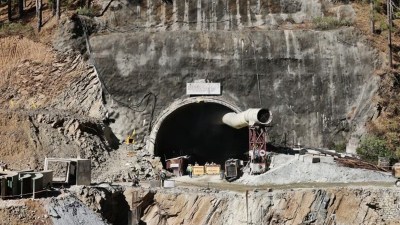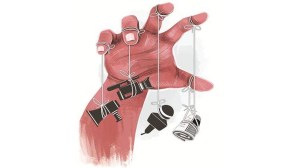Common Cause
For over two decades, with parent company Suzuki not into diesel-engined cars, Maruti Udyog, India8217;s largest car maker, had to largely ...

For over two decades, with parent company Suzuki not into diesel-engined cars, Maruti Udyog, India8217;s largest car maker, had to largely stay out of the diesel game.
Its offerings were mainly confined to expensive diesel engines sourced from Peugeot for its Zen and Esteem models, which were launched in the late 8217;90s, and the car maker left the field open for firms such as Tata Motors, Ford and Hyundai.
But while its diesel initiative will take some time coming, the car maker is looking to have a go at it in a big way. Maruti will invest Rs 350 crore in an all-new facility near Gurgaon which will manufacture 100,000 diesel engines annually. The plant will be up and running in 2006. The technological know-how for the manufacture of these 1300 CC, common rail diesel motors comes from a GM-Fiat powertrain venture.
8220;Our decision to invest in a new facility to manufacture diesel engines underlines our parent, Suzuki Motor Corporation8217;s continued commitment to India. It is in keeping with Maruti8217;s strategy of providing suitable products for diverse segments of customers,8221; says Jagdish Khattar, managing director, Maruti Udyog.
|
|
|
100,000
Number of diesel engines to be made by Maruti Udyog starting 2006 Rs 350 cr Investment in new diesel engine facility 696207 Total number of passenger cars sold in 2003-04 17 per cent Share of diesel-engined models 55 per cent Maruti Udyog8217;s market share |
|
|
The company8217;s intention to seriously enter the diesel segment8212;which today accounts for 17 per cent of the total passenger car market and is expected to grow further8212;is viewed by observers as a very important step. And this is not just because the options for Maruti customers is bound to grow in times to come or the threat it could pose to diesel players like Tata Motors. 8220;The diesel engines made by Maruti will meet Euro IV emission norms, are very advanced, and will offer as much refinement as a petrol model,8221; says Hormazd Sorabjee, editor, Autocar India. 8220;Take the case of the Skoda Octavia which has both petrol and diesel versions selling at the same price, but the diesel model outsells the former by a huge margin,8221; says Sorabjee.
The company then is preparing to be at the right place at the right time, when both price and performance difference between the two kinds of engines will be marginal or even negligible in India.
According to a company official, the diesel thrust will help Maruti increase in market share8212;currently hovering at 55 per cent8212;by a significant margin. What also help8217;s Maruti8217;s cause is the general perception that price difference between diesel and petrol, regardless of market determined pricing, is bound to stay.
The import of Maruti Udyog Ltd8217;s plans and its consequences doesn8217;t end there. The diesel engine facility will also mark the coming of age of global automotive alliances in India, a trend that is already prevalent across the world. In this case, with Suzuki being part of a GM-Fiat global alliance, the engines made by Maruti will be used not just for its cars, but also for both General Motors and Fiat models made in India.
8220;While the engines could be used in upcoming models like the Liana, they could also power both GM and Fiat models,8221; says Sorabjee.8217; According to industry observers, the engines, already seen in different cars like the Fiat Panda and the Opel Agila will also be exported and used across the GM and Fiat network worldwide.
8220;The alliance is already at work with Maruti supplying sheet metal for the Chevrolet Tavera and once engines come into the picture, you8217;re looking at great savings in costs,8221; says an automobile industry observer.
The diesel-engine facility, then, is not about more gains for Maruti. Not only does it consolidate the Suzuki subsidiary8217;s standing in the alliance, but it also is a pointer towards a future Indian car mart that will be dominated by global automotive tie-ups.
- 01
- 02
- 03
- 04
- 05































